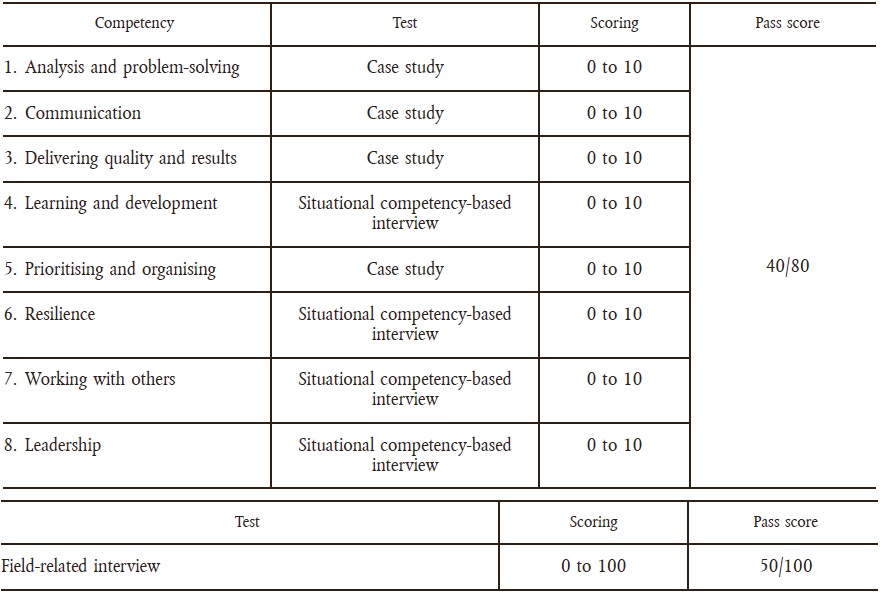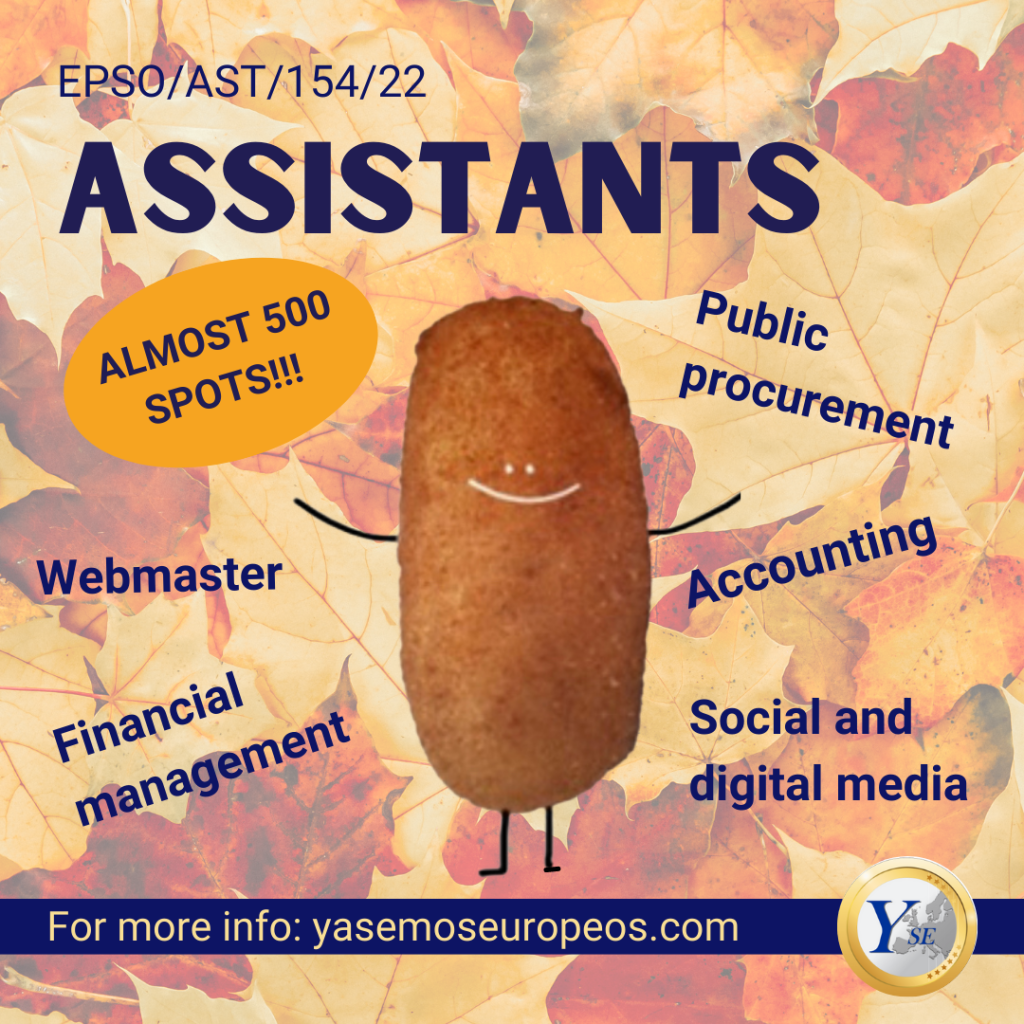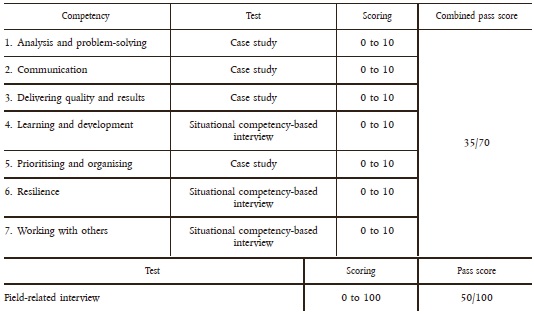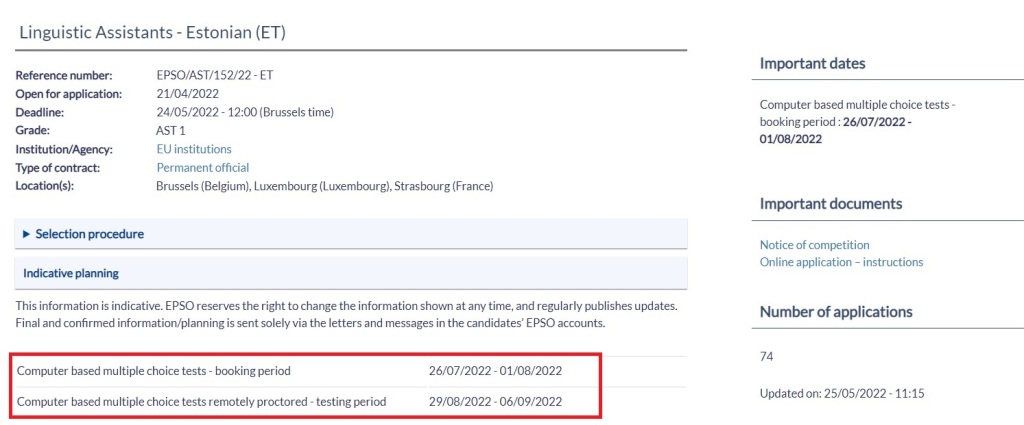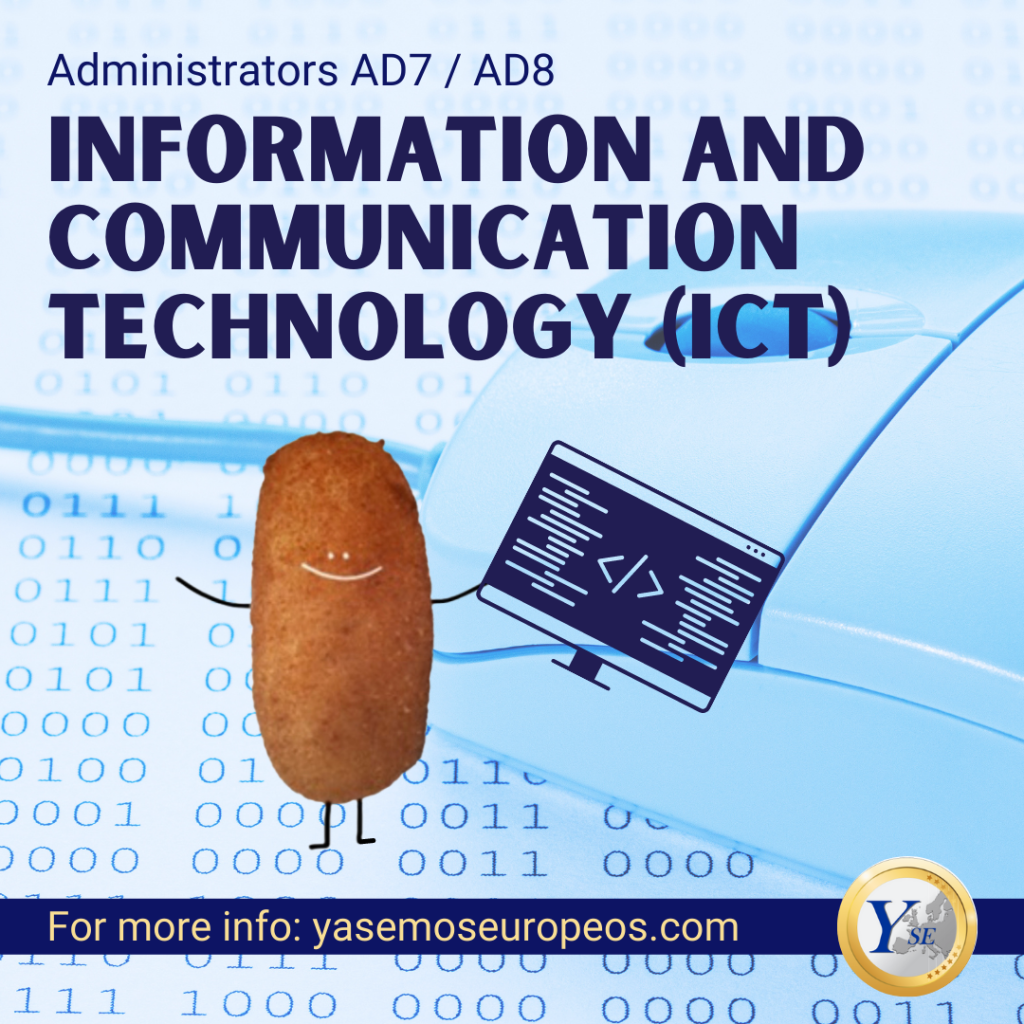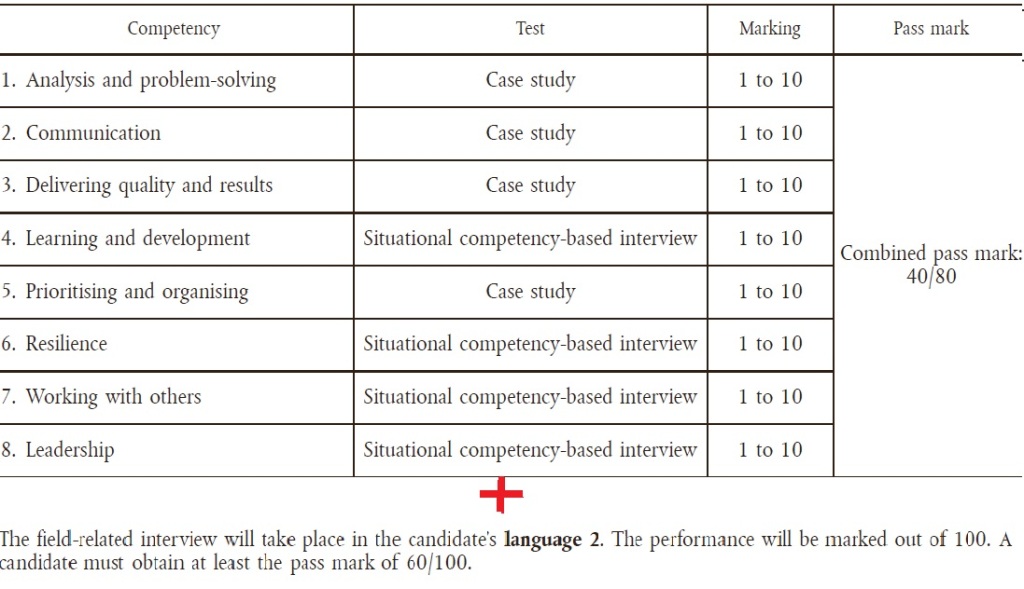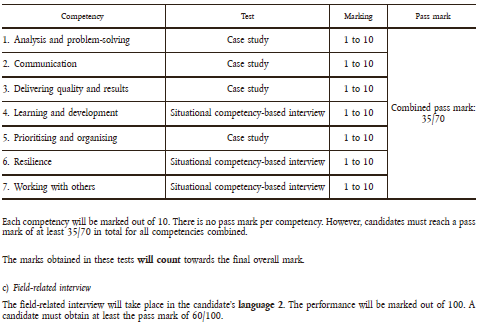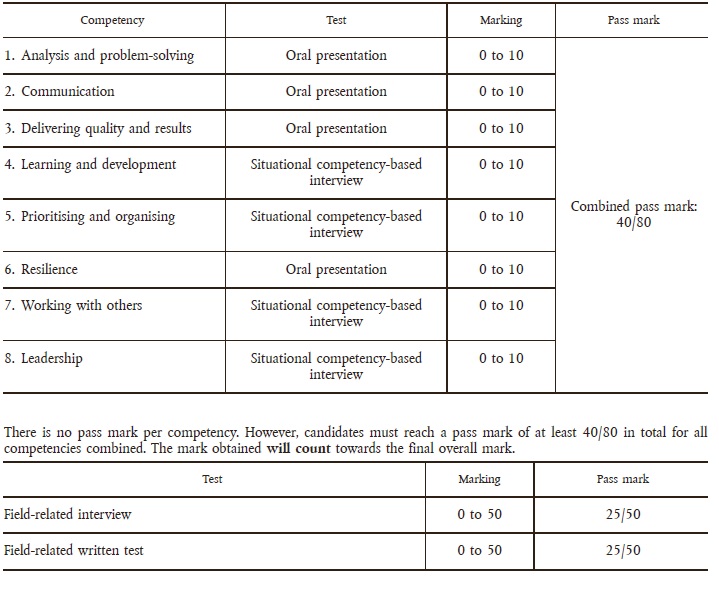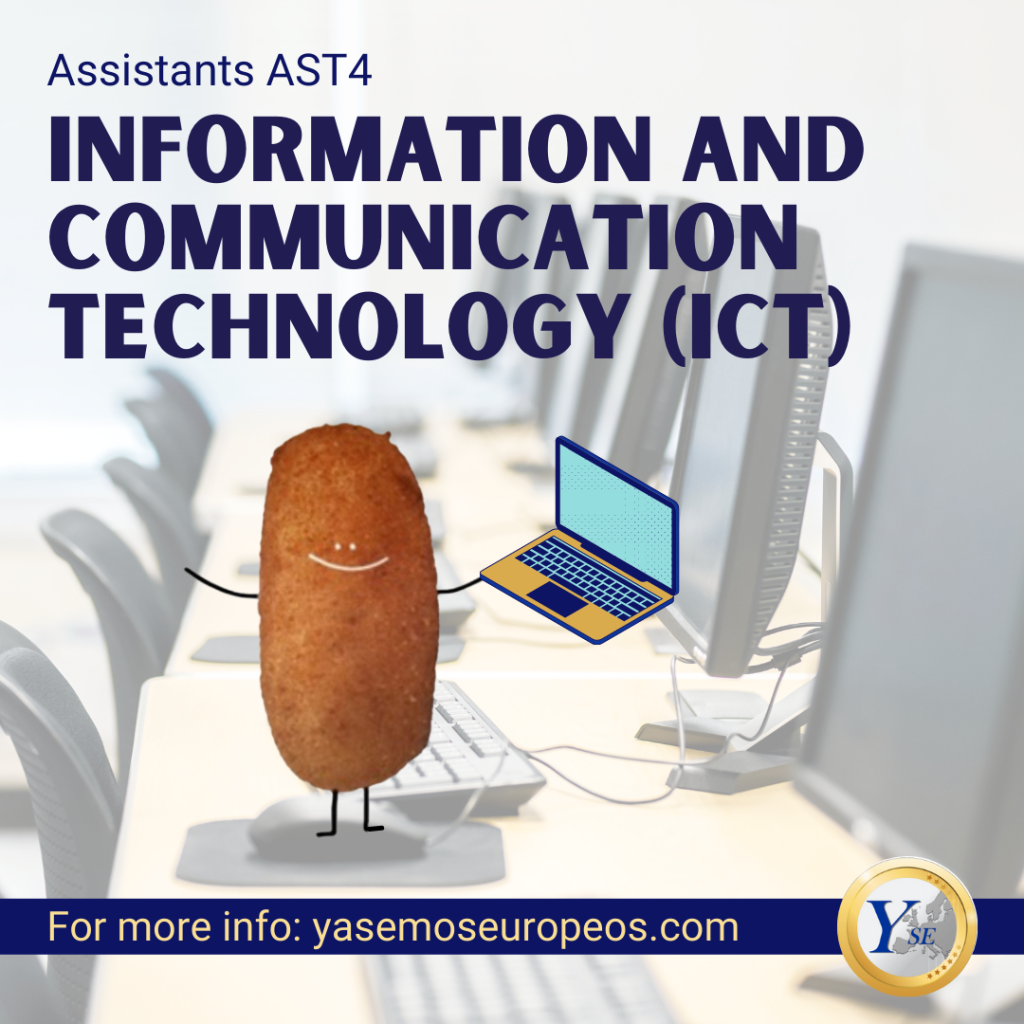Dear all,
Here we go again! fully loaded of (green) energy, EPSO has launched another AD6 competition in 3 (different?) topics : Energy, Climate and Environment with more than 150 spots (155 to be accurate). Probably they couldn’t have chosen a better moment to do so, nowadays, these are THE TOPICS. Even if tragic events such as the invasion of Ukraine by Russia comes to an end and some stability is back in our lives, climate change and the need to protect the environment will still be there, also the need to tackle these issues by saving energy and using green re-sources. Therefore today’s competition is a competition for the future, are you ready to meet the challenge?
How many spots are available? When does the process begin?
A good number of spots are available, distributed in 3 fields : 54 for Energy, 49 for Climate and 52 for Environment, so 155 spots in total!!!, The bad news are that you can only apply to one single field, if you have doubts about where you fit best, check the questions in the Talent Screener of each profile. Be careful! The process began on 20 October and it will be open for joining until 22 November NOON (let’s say 11.59 AM CET). Until then, you can fill in and validate your application. Approximately, you have been given one month +2 days , that’s more than enough so charge your environmentally friendly batteries and go for it! If you want some hints on what to next, keep reading.
What are the criteria to be a candidate?
The general criteria, as usual: Enjoy full rights as a citizen of a Member State of the EU (of the 27 Member States, sorry, UK is no longer an option), meet any obligations under national laws on military service, and meet the character requirements for the duties concerned.
Specific criteria – languages

I.-LANGUAGE of the APPLICATION: You can choose among the 24 official languages of the EU and you should have, at least, the ability to write your application in that language. Ok, but the question is, in which language should I draft my application? Should I do it English? French? Or my native language if it is none of the previous? You have the right to do it in your EU official (one of the 24) language but nobody guarantees that someone from the board will be able to read it and, in such case, they would have to translate it. If so, will all the details of your application be properly captured by the translation? If you are uncertain of the answer, better to use a common use language in the institutions, such as English or French. Besides, the check of the CVs for eligibility criteria will be faster if there is a high number of applications in those languages (English and French). For Spanish and Italian speakers, the chances of having someone who can read them are high so the risk of using translation tools is rather mitigated, while for other languages, our answer is that you should verify the chances of having fluent readers of your language in the board of evaluator. BUT also you have to take into account the….
II.-LANGUAGE of the TALENT SCREENER: this time you can’t choose. It must be ENGLISH. So that another good reason to do all your application (CV+Talent Screener) in English, so you can guarantee homogeneity and avoid potential mistakes of mixing languages. But this is only our opinion, at the end, you choose the languages within the possibilities offered by the notice of competition.
Also on languages, bear in mind that, as a candidate (= after you formally submitted your application) of this competition, EPSO will communicate with you (via the EPSO account or by email) in one of the languages that you have declared to have knowledge of at level B2 or higher in the ‘Ability to read’ section in the application. But if you want to complain about an error in the computer-based multiple-choice questions (MCQs) or do a requests for review you have to submit the requests or complaints in English or French. For other questions is any of the 24 official languages (again, the more spoken the language is, the faster they can deal with your communication)
III.-LANGUAGE of the Reasoning test (CBT): You can choose among 24 23 official languages of the EU, all except ENGLISH and you should have, minimum, a C1 level. For your mother tongue, you should qualify yourself as C2 and be CAREFUL! Do not say you have a level below C1 for any language skill (listening, reading, oral communication, written communication…), otherwise you will be disqualified automatically. The computer-based tests or CBT (verbal, numerical and abstract reasoning) will be taken in that language.
IV.-LANGUAGE of the ASSESSMENT CENTRE: ENGLISH or ENGLISH (sorry, you can’t choose, duty calls and EPSO explains it long and clear why in the notice). Here we need a B2 level minimum of English (no need to have a degree to justify it, the tests in the Assessment Centre will be done in this language and if you can work through them, then you will qualify as having the level required). Remember, when describing your level of English in the application, not to put any item (written, oral level, or any other) below B2 level.
Specific conditions – Work experience and studies
Let’s proceed by grouping all the criteria in each field, in an orderly manner so the criteria are more visible to all of you, especially the years of relevant working experience, which depends on your university degree.
Be aware! In the part «professional experience in the field or relevant» when describing your professional experience in the application (CV – work experience), you must clearly identify the experiences and activities equal or similar to those you are expected to do in the European Institutions and described in the notice twice (please check our table above): first in point 3.3 Specific conditions (do you need more hints?) and later in Annex I – Typical duties, so take a good look at the columns of our tables, explain your experience and keep calm! If you find this task difficult, perhaps our next webinar on this competition that will take place on 24 October can be key to help you fill in your application.
What are the tests that I have to pass? And the competition phases?
Based on the notice of competition + our experience, we split the process in 5 phases: 1) fill in the application, 2) eligibility checking 3) Talent Screener 4) CBT and 5) the Assessment Centre. The celebration after you have passed the competition is up to you. Before we continue, remember you can join our Telegram channel YSE to be updated in all the steps of this competition, vacancies, our trainings and useful infos.
Phase 1 – Fill in the Application and the Talent Screener
You’ve got until 22 November (noon) to send your application and before that, fill it in with love and care. This is the first step of the process, and the moment to differentiate yourself from the other candidates and all their experience in relation with the different profiles. So, keep it focused : Work experience + Academic records/University Degree – these will be used to confirm your eligibility (= whether you have as many years of working experience in the relevant duties as required) so you need to explain your work experience according to the items described in the notice (central and right side column on the tables above,…yes those, so check them again).
… (Wait! we are still in phase 1 and I have two relevant questions)
How can I prove my experience is relevant? This time it is up to you and to explain it clearly, by using the key words of the task described as a requirement. Remember you will have to provide evidence of all those experiences described (Check annex III point 1 b) to see what it’s accepted to prove it).
What is a TALENT SCREENER? This is a list of questions related to your academic and professional background that you must answer in your application, you can find the questions on the Annex II of the notice of competition. The board of the competition is in charge of evaluating the answers. Keep in mind that all candidates in the same profile and field answer the same questions. In this way, the responses of all the candidates are structured in the same way, which allows the board to make an evaluation (as objective as such a type of test allows) of the compared merits of all the candidates. Remember to look at annex IV or the application form for all the details, and if you think we can be of help, come to our our free webinar next webinar on this competition that will take place on 24 October 18:30 (or watch one of our previous ones here the recording).



In this way, the responses of all the candidates are structured in the same way, which allows the board to make an evaluation (as objective as such a test allows) of the compared merits of all the candidates.
Phase 2 – Eligibility check
Here you can do nothing but wait. It is the task of the board to read first your CV to see if you have all the years of working experience required. It doesn’t matter if you have 20 or 6 years, once you have passed the threshold of having enough experience you go to the assessment. We remind you that the selection based on compliance with the eligibility conditions will be carried for all the candidates. You should therefore include all the relevant information in your application form (we insist).
Phase 3 – Talen Screener evaluation
Once you have been deemed eligible and all candidates have been evaluated, you and all the candidates will get an email informing on this and that you advance to the Talent Screener (BUT it doesn’t mean that you have been invited to the Assessment Centre… yet). Talent Screener evaluation will begin then using solely the information provided in this Talent Screener section (in English), they don’t cross reference with the rest of your application or Google to look for more information about you. You should therefore include all relevant information in your answers, even if already mentioned in other sections of your application form. The questions are published in annex IV of your notice of competition.
The best of all this is, after the evaluations (eligibility and talent and several months of wait), the number of candidates who will go to the Assessment Centre will be only up to 3 times the amount of openings. We are talking approximately 450 candidates in total and you are one of them because you have written a great application 🏆.
Phase 4 – CBT – The reasoning tests
Congrats! You are one of the four hundred fifty candidates with the highest marks in the Talent Screener and you have been invited to the Assessment Centre, the final round. In this round, you will also have to present all your papers in digital format (it used to be a USB memory stick before, now in the online Assessment Centre you will have to upload the pertinent papers before having the test), so prepare them in advance to avoid rushing in the last minute. First we’ll have the CBT (computer-based test), not so terrible as it looks, as you don’t need much to pass it (like an ordinary CAST exam) and there is no need of having a high mark, only passing it is enough.
Phase 4 – Assessment Centre.
Now talking about the other tests, the competition turns into a classic. You will have to face the following tests: Case Study and Situational Competency-Based Interview. Here you have 8 competences to be assessed. Between the two tests you can gather a total of 80 points, with the particularity that you need an overall 40/80 to pass, but no minimum marks per competence. Don’t get over confident, do fine on these two and you will be fine for this part although the more points we get the better (we can help with that).
Anyway, the key part is the field-related test where you will have to demonstrate your know how on the field, explaining, in detail, your relevant experience for this position. The Interview in the Field is also somehow structured but as it has a clear focus on your work experience, is much more interesting and rewarding, you can get up to 100 points in that test (we can help on that too), approx. 60% of all the available points.
Final Step – After a long process and passing the Assessment Centre, EPSO will check the validity of all your records and professional experiences (comparing them to the input of your application). For these, they will use the documents uploaded at the beginning of phase 4 – right before your first test of the Assessment Centre. So, keep your documents ready for upload once you have passed the eligibility check!!! Once you get the final OK for this part, you will see your name on the reserve list and ready to find a job as officer of the European institutions.
What is the timing of the competition? When will EPSO contact me?
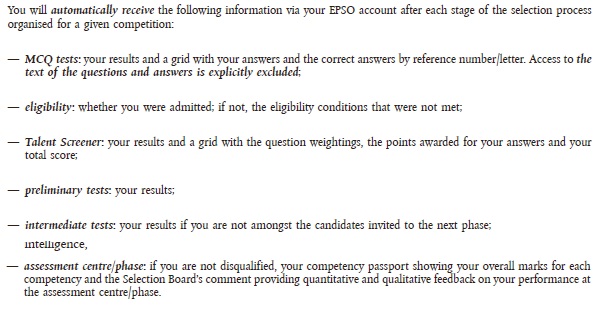
The expected calendar for this competition is the following: after the closure date for the submission of the applications, second half of November, you will have the opportunity wait for a long time (winter is coming!) until they have done the eligibility check and the evaluation of the Talent Screener. Do not expect they will finish with the Talent before April 2023. Then you will have to take the CBT by May and the Assessment May-July 2023. After that, they will run the verification of your background documents (Summer time) and publish the reserve list by Autumn 2023. We are living light-speed times!
Many of you ask about when EPSO will tell you that you have passed to the next phase, or have been invited to the Assessment Centre, or…. you read/heard rumors about the development of the competitions somewhere. Better to isolate yourself from that noise and focus on the real messages. EPSO commits itself (it’s in Annex III of the notice of competition) to communicate with you after the applications have been evaluated to inform you on the results and to invite you to the Assessment Centre. In the meantime, it can take weeks or months to receive any information or being notified that we have passed to the next phase of the competition, so keep calm. If you are feeling desperate for the lack of news, you can always contact EPSO too, as candidates you are entitled to do so but be careful, replies can be a bit cryptic or copy/paste from the notice.
How much will my salary be?
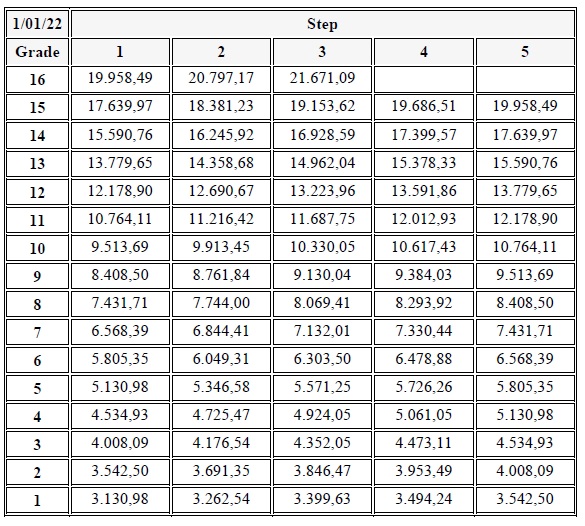
One of the most typical questions of the candidates is the salary that you will get. An AD6 (step 2) will join the institutions with a salary starting at 6.000 € and this can be higher depending if you have dependent family members and other conditions. To that amount, you will have to add 16% extra of expatriation allowance and subtract the cost of the taxes (you pay taxes to the European Commission), health insurance and pension, all them proportional to your salary, so expect around the same amount, 6.000 € in net salary. By the way, we refer to step 2 as any first entrant in the institutions can’t join above that step, it means you have at least 3 years of professional experience, what in this competition, is obvious. And if you are worried about life in expensive countries the basic remuneration is supplemented by an allowance linked to the living conditions prevailing at the place of employment, so don’t worry too much.
Can you help me?
Let share some useful links for this competition, our trainings and more.
List of useful resources
- El CBT o los test psicotécnicos (ES)
- The Assesment centre (EN)
- 10 free resources (EN/ES).
- YSE trainings (English and Spanish) :
- CBT (in Spanish)
- Assessment sessions – for all the Assessment test (Theory in English or Spanish. Practice can be done in EN,FR,ES)
- Application review (EN/ES/FR/IT/DE)
- CAST Sessions -have you been invited to a job interview? Do you want to improve your chances of being selected in a CAST process?









